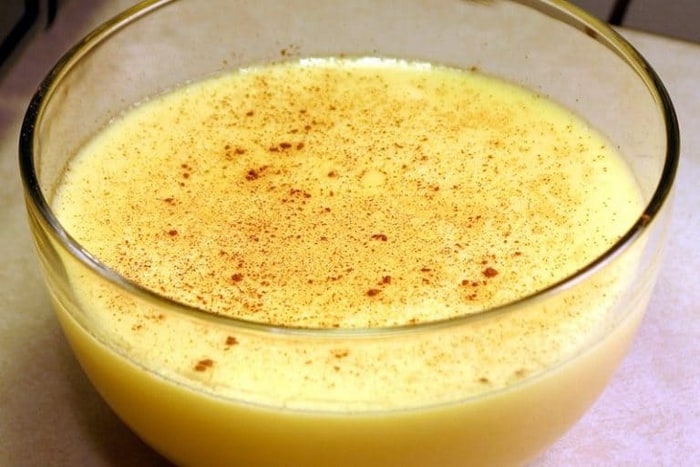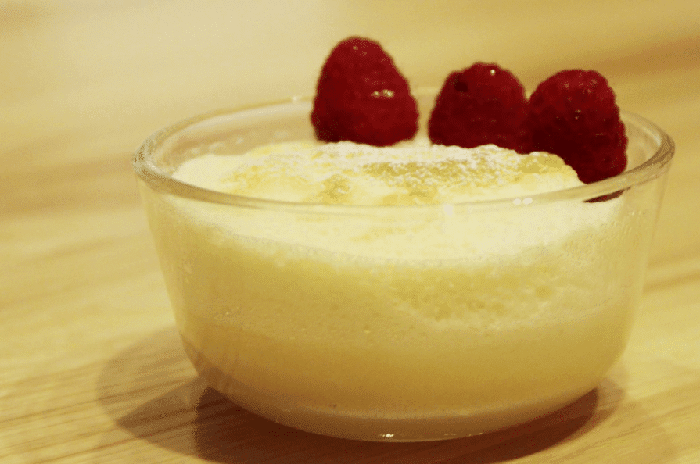Can you eat custard when pregnant?
Custard is a dessert topping made from milk or cream mixed with eggs, sugar, vanilla extract, and other ingredients. The word custard comes from the Latin word cuscus meaning “cooked milk”. Custards are usually served cold.
Custard is a classic dessert topping that has been around since ancient times. It was originally used as a way to preserve food during long journeys. Today, the custard is often found at breakfast time, especially in the UK.
Today, the custard is considered a dessert topping rather than a sauce. It is typically eaten warm and topped with fresh fruit. However, you can also enjoy it cold as a dessert.
Custard is delicious, but some foods aren’t safe to consume during pregnancy. Can you eat custard when you’re expecting?
Pregnancy is a time of great joy and excitement. During this period, expectant mothers should focus on their health and nutrition. Most women don’t realize that certain foods can cause harm to the fetus.
Some foods are known to cause negative side effects to the baby. These include caffeine, alcohol, tobacco, and certain types of food additives. Custards are no exception.
Can you eat custard when pregnant?
The answer depends on how much custard you have and what type of custard it is.
If you are eating custard for the first time, then it is best to avoid it until after your third trimester. This will help prevent any potential problems.

If you are already eating custard, there isn’t anything wrong with consuming it. You may want to limit the amount of custard you consume though.
Does custard have raw eggs in it?
Custard is a dessert mixture of milk and egg whites. It is usually served warm or cold and can also be frozen. Custard can be cooked in a regular oven or an electric cooker. To make a custard, cream of tartar (a type of acid) is added to milk and eggs and whisked together until smooth.
The result is a thickened mixture that contains milk solids. Custard can be flavored with vanilla, chocolate, coffee, cocoa powder, cinnamon, ginger, lemon juice, orange juice, nutmeg, rum, and other ingredients.
Is custard always pasteurized?
Yes, the custard is always pasteurized. Pasteurization involves heating up the product so that harmful bacteria cannot survive. When making custard, the temperature must reach 140 degrees Fahrenheit.
This process kills most of the bacteria in the product. If you are worried about getting sick from custard, then you should ensure that the custard is properly pasteurized.
What happens if I drink too much custard?
Drinking large amounts of custard can lead to stomach upset. This includes nausea, vomiting, diarrhea, cramps, and bloating. In extreme cases, these symptoms can even lead to dehydration.
You should never drink more than two cups of custard per day. This is because drinking too much can cause serious complications.
How do I know if my custard is safe to eat?
You need to check the label before buying custard. All custards should contain the following information:
• Ingredients
• Preparation instructions
• Storage instructions
• Expiration date
• The number of servings in each container
If you see any of these items listed, then you can safely assume that the custard is safe to consume.
What type of custards should pregnant women avoid?
There are many different kinds of custards available today. Some custards are made using raw eggs while others use pasteurized ones. Custards can also be made with whole eggs or egg yolks.
Whole eggs are safer than egg yolks as they contain less cholesterol. They are also easier to digest. Egg yolk has a high level of fat which makes it difficult for the body to absorb.
Whole eggs are also used in baking and cooking. This means that they are often found in recipes like cakes and cookies.
Egg yolks are mostly used in ice creams, cheesecakes, and desserts.
Which custards are considered healthy?
Some custards are made with skimmed milk instead of whole milk. These types of custards are considered healthier since they don’t contain as much fat.
They are also low in calories and sugar. However, this doesn’t mean that they are completely free of fat. Many of them still contain some butter or margarine.
Other custards are made without dairy products such as milk. These types of products are called vegan custards. Since they don’t include any animal products, they are considered to be healthier.
However, there are no regulations on what kind of ingredients can be included in custards. Therefore, you shouldn’t expect all custards to be healthy.
Are custards good for babies?
Custards are great for babies. They help develop their digestive system and teeth. They also provide essential nutrients to growing bodies.
Custards are especially beneficial during pregnancy. During pregnancy, your baby needs extra calcium, iron, zinc, and vitamins A, B12, D, E, K, and C.
Custards also have lower levels of sodium and saturated fats compared to other foods.
Which Brands of Custard Are Pasteurized?
The best brands of custard are those that are pasteurized. You should always look for labels that say “Pasteurized”.
This indicates that the custard was heated up to a temperature of at least 161 degrees Fahrenheit. At this temperature, bacteria cannot survive.
This ensures that the custard will not make you sick. It also helps prevent food poisoning.
How to store custard?
Store custard in an airtight container in the refrigerator. Make sure that the bottle is tightly sealed so that oxygen does not get into the container.
Make sure that the container is clean before storing custard inside. If possible, wash the container first. Then dry it thoroughly before putting custard inside.
Make sure that you keep custard away from heat sources such as ovens, microwaves, and refrigerators. Heat sources can destroy the nutritional value of custard.
Do not put the custard in the freezer. Freezing destroys the texture of custard.
Do not open the lid of the container until you are ready to consume the custard. Otherwise, the contents may spoil.
What type of food should pregnant women eat?
During pregnancy, you need to take special care of yourself. That includes eating nutritious meals. You should avoid certain kinds of food because they could harm your unborn child.

Some examples of these foods include:
• Alcoholic beverages
• Cigarettes
• Coffee
• Chocolate
• Artificial sweeteners
These foods can cause birth defects if consumed while pregnant. Your doctor will advise you which foods are safe to eat during pregnancy. Most people find that they enjoy eating more during pregnancy.
